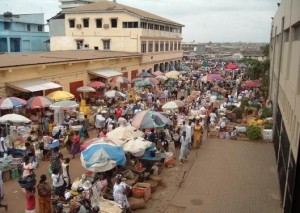Review local economic development policy – researchers urged
 Dr Abdulai Darimani, Acting Director, Institute of Local Government Studies (ILGS), has called on researchers to provide a careful appraisal on the implementation of the Local Economic Development (LED) Policy.
Dr Abdulai Darimani, Acting Director, Institute of Local Government Studies (ILGS), has called on researchers to provide a careful appraisal on the implementation of the Local Economic Development (LED) Policy.
He also called on District Assemblies to continue to reflect on how the LED Policy could serve as an effective tool to local assembly development.
“The future of local authorities rests essentially on resources around them, we cannot have local authorities whose success solely rests on the national cake,” Dr Darimani said in Accra at a Public Lecture organized by ILGS.
He said the lecture which forms part of a series of internal lecture held by the Institute monthly, sought to create a platform on public education.
“It is also a forum aimed at building the confidence of the young and intellectual as well as to share information,” he said.
Dr Darimani said over the years ILGS had seen the lectures as a training grounds for academic research and it was the Institute’s primary goal to build on it, have different kinds at the national level where high profile persons, academicians and seasoned lecturers as well as politicians would lecture on Local Government and Decentralization.
He said it was the hope of the ILGS faculty to build on the internal lecture where assessment would be made on the three departments of the Institute, which are the Local Economic Development, Environmental Science Policy and Management and Local Government Administration.
Presenting findings on a study dubbed, “Implementation on the National LED Policy: Key Challenges and Prospects”, Ms Grace Simpson, Head of LED Centre, ILGS, said the main objective of the study was to examine the state of implementation of the LED Policy in the various Metropolitan Municipal and District Assemblies (MMDAs).
She said the study which was conducted in the 57 MMDAs in the Ashanti and Brong Ahafo Regions, was targeted at Coordinating Directors, Planning Officers, Business Advisory Officers, and the private sector s in the various districts.
Ms Simpson said the study revealed that MMDAs were aware about the national LED.
“However, they have not fully incorporated aspects of the policy into their District Medium Term Development Plans though they are implementing some activities in their localities,” she said.
She said the study also showed that the LED activities implemented at the various MMDAs levels were helping to create sustainable jobs, increasing household incomes, reducing household poverty and enhancing economic growth.
“Lastly, the study revealed that MMDAs are faced with the challenge of inadequate funding and identification of right stakeholders in the implementation of the LED activities in their jurisdictions,” Ms Simpson said.
Participants who spoke to the Ghana News Agency lauded Ms Simpson and called for the readiness of local, private, public and business sectors to work collectively to help make the implementation of the LED Policy worthwhile.
LED is defined as the process by which local governments, local businesses and other actors join forces and resources to enter into new partnership agreements with each other or other stakeholders to create new jobs and stimulate economic activity in municipalities, towns and villages to build up the economic capacity of a local area in order to improve its economic status and the quality of citizenry.
Source: GNA
